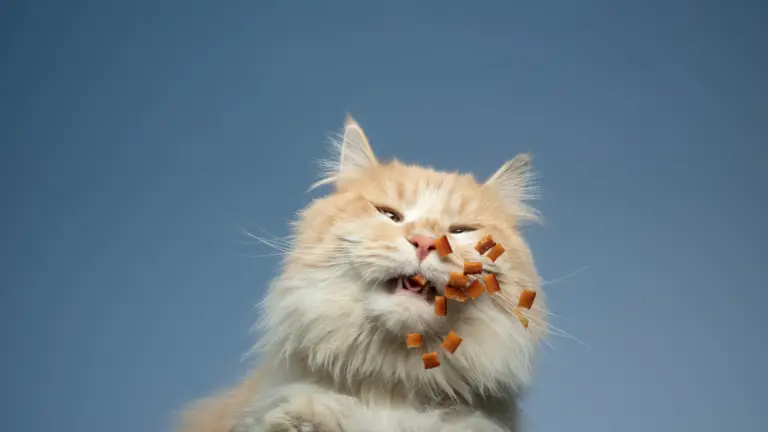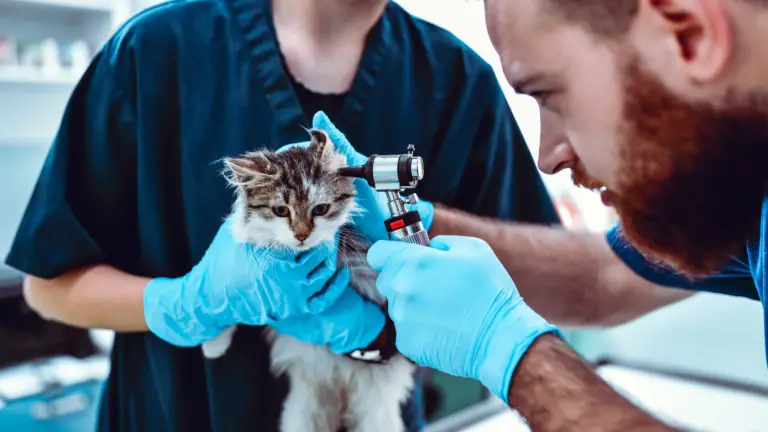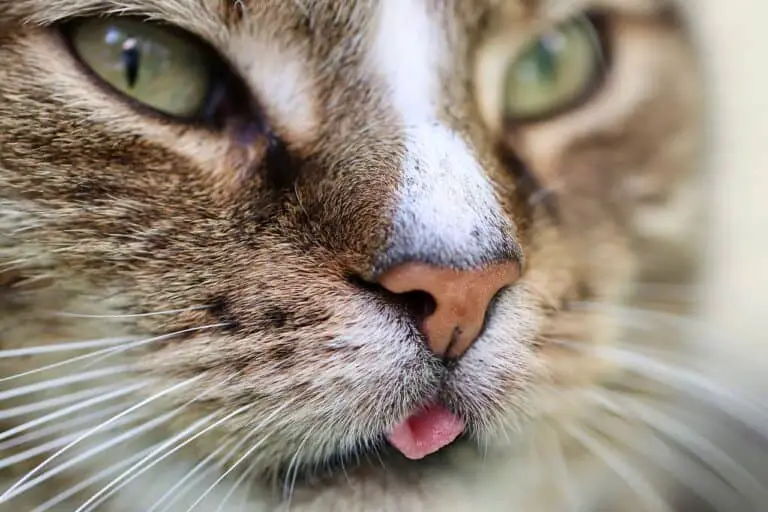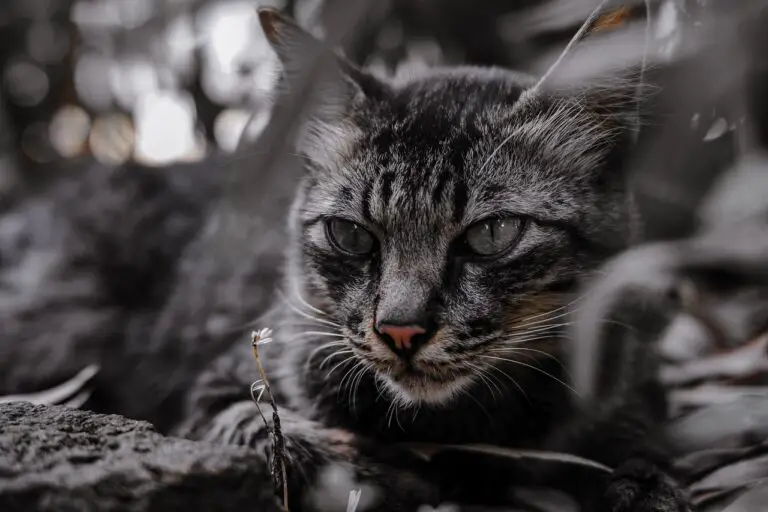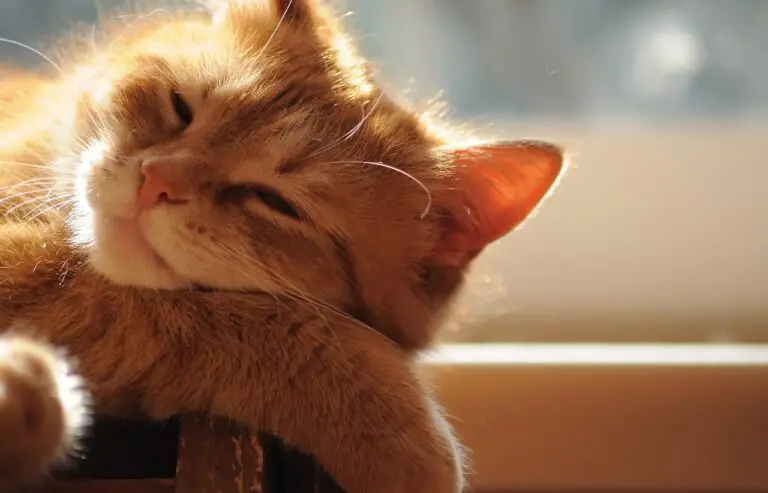CAN I GIVE MY CAT TAP WATER?
Can I give my cat tap water? A cat owner may have asked himself if it is safe to give tap water to his cat. This is an important question to answer since water is vital. Are we poisoning our cats when we give them tap water?
Tap water may be treated in a certain way, depending on where you live. In some areas, tap water is hard to drink, and it tastes like chlorine since it is one of the chemicals used to clean and treat water for human use. If you live in an area where you are not drinking tap water, it should not be given to your cat. The best is to do research in your area and find out how drinkable the water really is.
Let’s see the specifics.
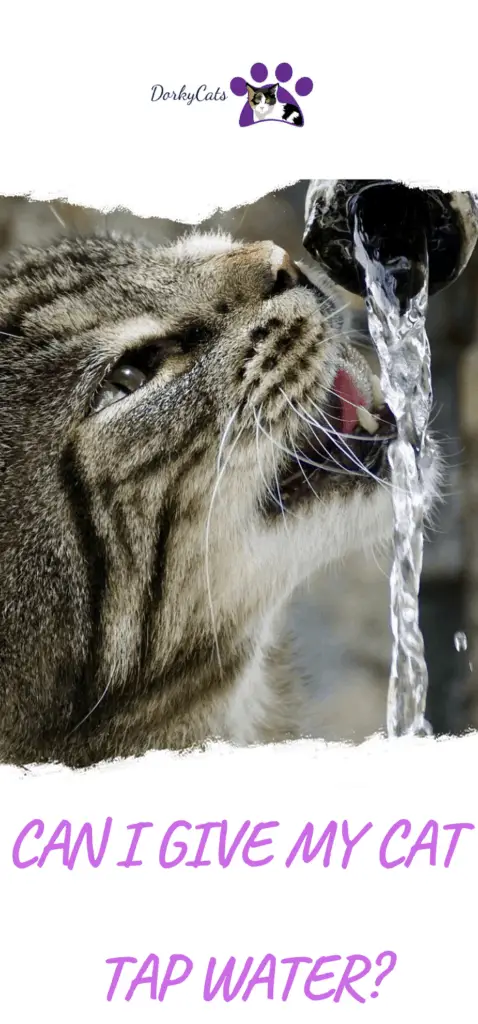
CAN I GIVE MY CAT TAP WATER?
Regular tap water goes through several processes before arriving at your home. Those processes include treatments with chemicals to clear out dangerous elements that can make a person sick from drinking it.
In some parts of the world, though, water is not always good to drink, even if processed. Or if it is good to drink has a terrible taste, like chorine or some other unpleasant taste. Cats hardly would like to feel chlorine in their water.
For example, I have been in the north of Europe, in Sweden and Denmark, Belgium, and Great Britain. I would drink tap water in Sweden and Denmark. Water tastes really good. The difference between tap water and what you can get from bottled water is really minimal.
I have been in the United States, Los Angeles, and Las Vegas, to name a few places. I tasted wanter there, and I almost puked. I could never drink it. Most of my friends and co-workers would not drink it. You would get bottles or big tanks of drinkable water or water filters. Everyone solved the problem in different ways.
The only thing I know is that I have been for four years in those cities, and I never drink tap water, and I would not give it to my cat either. I adopted Coco in Las Vegas, and I always gave him bottled water.
I would not go too much into the point if that water was good for heath or not, there are many debates about it, but my point of view is that if I can’t drink it, why another living being should drink it if there is a chance that is not good?
One can search to find out how drinkable is the water in your area and make an informed decision if your cat should drink it or not. It is impossible to have one answer that fits everyone. I can give you some personal examples. Ultimately the decision is yours; keep in mind that if the water is not good for humans, it is not good for cats, dogs, or other animals.
HOW TO FIND OUT IF YOUR WATER IS CONTAMINATED?
If you live in the United States, there is a way to find out what chemicals can be found in the water from your city. There are annual testing being done, and a report is issued. Before going into the specific, let’s clear the overall water cleaning treatments used.
One of the most used method of cleaning water is chlorine.
The most common disinfection method involves chlorine or its compounds such as chloramine or chlorine dioxide. Chlorine is a strong oxidant that rapidly kills many harmful micro-organisms. (Ref. Wikipedia)
One drawback is that chlorine from any source reacts with natural organic compounds in the water to form potentially harmful chemical by-products. These by-products, trihalomethanes (THMs) and haloacetic acids (HAAs) are both carcinogenic in large quantities. (Ref. Wikipedia)
Therefore even if this method kills a lot of harmful bacterias, viruses and other pathogen, it has still a risk as far as health is concerned.
Chlorine is efficient at eliminating microbial pathogens, so 64% of US community water treatment systems use chlorine as a disinfectant. However, some consumers don’t like the smell or taste of chlorinated water. Studies suggest that bi-products of chlorine disinfection could increase cancer risk, including bladder and rectal, by up to 93%. (Ref.Waterlogic.com)
If you want to find the water state in your city, you have to read the annual reports. In the US, tap water suppliers publish their water quality tests every year. Look up your city’s water in EWG’s National Tap Water Database and read their report. In the alternative, you can get a private lab to test if you get the water from a private supplier and then act accordingly.
I am sure that every country has a similar reporting, you have to search a the web or call the authorities to find out where you can get it.
ARE CHARCOAL WATER FILTERS BAD FOR CATS?
One way to make sure your cat water is purified is to use drinking fountains for cats with filters. Some drinking fountains have good quality filters with activated carbon or charcoal. Charcoal is often used as a filter and as a water purifier.
In other words, charcoal absorbs impurities in the water, and it is commonly used in cats drinking fountains. Drinking fountains are good to filter other dirt, like dust airs and so on. Therefore an additional tool you cat use is a cat drinking fountain instead of the normal water bowls.
Additionally, cats like to watch water falling and may be compelled to drink more. Another method of water treatment is UV (ultraviolet) lights. There are cats water fountain that provide charcoal filtering, combined with UV disinfection.
UV disinfection does not alter the physicochemical composition of the water. This means that water going through the UV reactor goes out with the same physical and chemical composition as it has before going in. The process only disinfects by removing viruses, bacteria, microbes, etc. (Ref. Bio UV Group)
Here are some water fountains for cats that can be used to clean and filter their water and keep them healthy:
iPettie Infrared Smart Cat Water Fountain
The description as far as the filtering is concerned is as follows: 6-Stage Water Filtration – The filter will remove 99% of heavy metals, chlorine, and hair to prevent pets from constipation or other digestive problems.
The filtration system consists of PP cotton, KDF (a high-purity brass water filtration), Ion exchange resin, activated carbon, quartz sand & mineralized ball.
The description as far as the filtering is concerned is as follows: Quadruple Filtration SysteM. PETKIT pet fountain is equipped with high performance purifying filter which is composed of a cotton layer, a coconut shell activated carbon and ion exchange resin. The filtration system provides healthy, fresh and oxygen-enriched water for your cats, dogs and small animals.
RELATED QUESTIONS
Here some related questions to: “Can I give my cat tap water?” and related answers:
- Can tap water make cats sick?
As gone over, tap water may contain by-products of chlorine, those byproducts, if taken in high enough quantity, may cause cancers and other health problems. It is always good to check the annual reports to see what is in the water in your city.
For US check here.
- Can cats drink distilled water?
Distilled water lacks minerals and other elements that are usually found in normal water. Additionally, distilled water is acidic and could lower your cat’s urine pH below 6, which could cause stones or crystals.
- Is hard water bad for cats?
Urinary problems can arise in cats that are drinking hard water. Therefore it is better not to give cats water that you know contain too many metals and impurities.
CONCLUSION
Can I give my cat tap water? I hope this was helpful. If you want to add anything or have a question, leave it in the comments below.

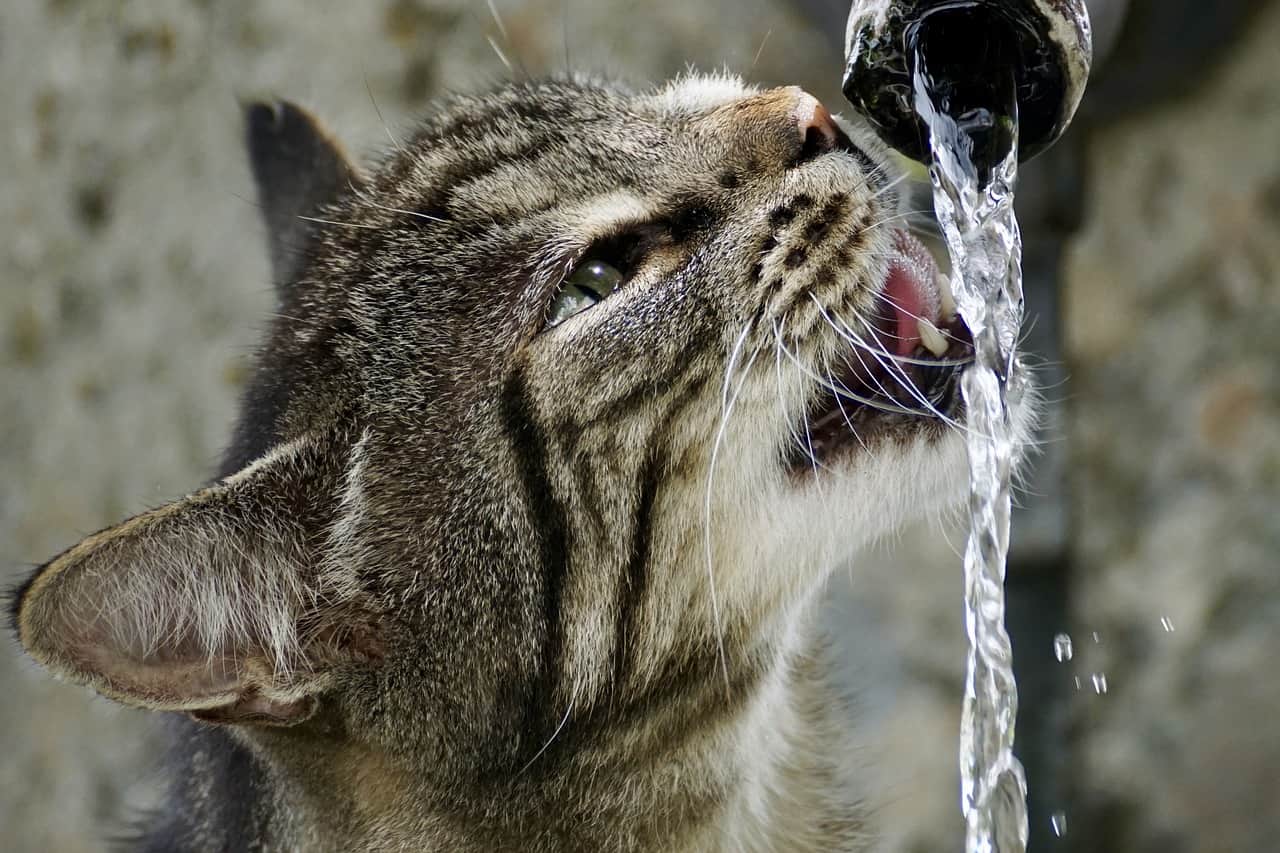


![MY CAT IS SO SKINNY I CAN FEEL THE BONES [WHEN TO BE WORRIED?]](https://dorkycats.com/wp-content/uploads/2023/02/Blogging-Tips-LinkedIn-Post-Header-42-768x432.png)
